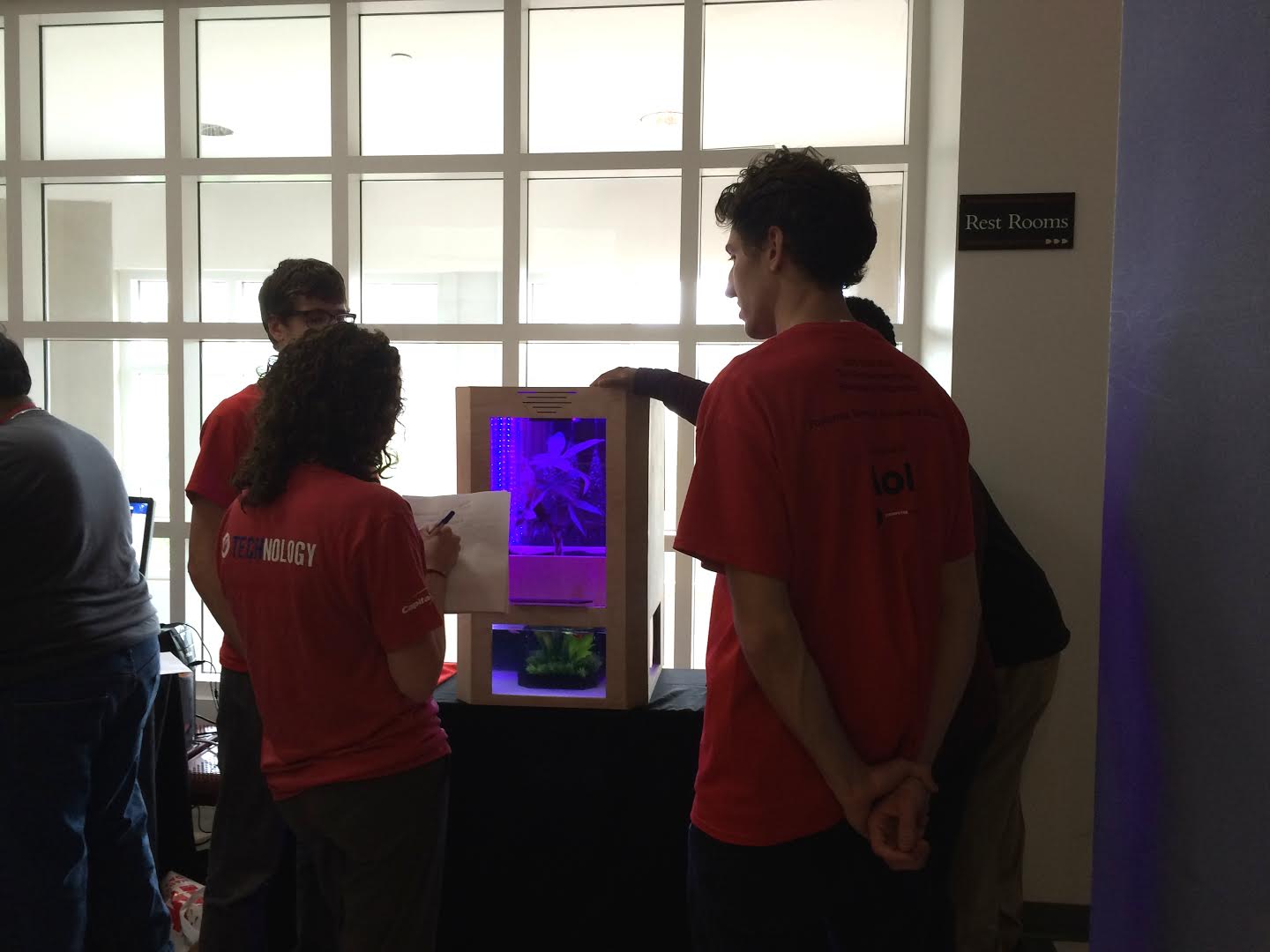By Gillian Vesely
For The Diamondback
With a grand prize of $5,000 on the line, 15 teams competed in the second-annual Fostering Innovation, Success and Humanity “F.I.S.H. Bowl” competition during this year’s Maryland Day.
The computer science department sponsored the event Saturday in the Computer Science Instructional Center, which featured individual students and groups of students showcasing entrepreneurship ideas, ranging from apps they developed to physical products.
A panel of judges ultimately named “17cow,” a website that helps non-native English speaking students through the college application process, the grand-prize winner.
“It means a lot [to win] the $5,000,” said the company’s chief technology officer and senior computer engineering major Jonathan Kau. “We now have the resources to double down on marketing, to double down on going to China, doing a lot more research and then possibly expanding into other fields.”
Jeff Hollingsworth, a computer science professor, was one of the competition’s judges. He said he chose 17cow as the winner partly because of how developed it was.
“They were far enough along that they had a product cycle,” he said. “They had actually sold to some customers early on [and] they had great plans for what to do next.”
Fellow judge Bill Pugh, a professor emeritus in the computer science department, said he was behind the company’s concept.
“They found a good problem, one that we’re familiar with,” he said. “This was a company where we thought the prize could actually make a difference to this company being successful.”
The event’s “Shark Tank”-inspired format included critiques from the judges, which drew Garrett County resident Melinda Lewis and her family to watch the competition. They were able to learn about senior William Dyess’ “Doctor Up” app.
“It was impressive,” Lewis said. “The technology looked very interesting and I thought it would be very helpful.”
That app allows users to “keep track of your symptoms [and] your medications, download your health records, and communicate them all with your doctor at the push of a button,” said Dyess, an economics and finance major.
He added that the competition helped bring awareness to his product, which the judges awarded with an honorable mention.
“Pinpointer,” a product that helps turn GPS locations into codes to make deliveries easier, was another competetor. The team won the $1,000 audience-choice prize.
“The money is a good plus, but what we were really looking for was the validation of the idea,” said Samrat Jha, a sophomore computer engineering major and Pinpointer team member.
Conor Sheehan, a junior computer science major, said he used the competition to publicly display his “Infinitry Grow Box,” the product he has been working on for two years, for the first time.
Sheehan’s product is an ecosystem that “combines an aquarium and a plant grow space” to make caring for them easier, he said.
“It’s really meaningful to have this opportunity to show people what we’ve been working on, show people our passion and get more people … involved in what we’re doing,” he said.



